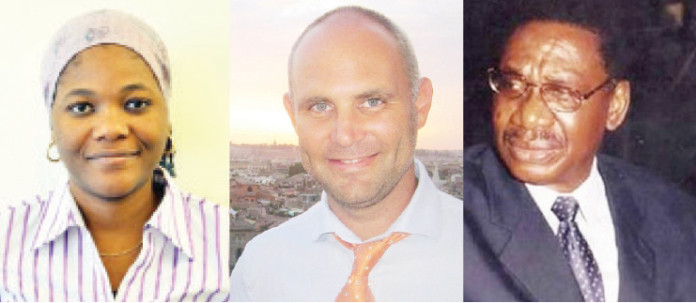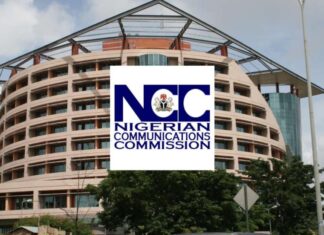United Nations General Assembly declared May 3 as World Press Freedom Day (WPFD). As Nigeria joined other nations to mark the day, stakeholders gave their verdict on Nigeria vis-à-vis press freedom. Senior Correspondent, ONYEWUCHI OJINNAKA, compiles their views.
In the beginning
The World Press Freedom Day (WPFD) was proclaimed by the United Nations General Assembly in 1993 following recommendations of United Nations Educational, Scientific and Cultural Organisation (UNESCO) general conference. Since then, May 3 is celebrated as press freedom day. It is celebrated yearly worldwide to evaluate press freedom, to defend the media from attacks on their independence and to pay tribute to journalists who lost their lives while carrying out their professional duties.
2016 WPFD focus
The theme of 2016 WFPD is ‘Access to Information and Fundamental Freedom: This is your Right’.
As enunciated by UNESCO/UN, this year’s WPFD focuses on three different aspects of press freedom – freedom of information as a fundamental freedom and as a human right; protecting press freedom from censorship and surveillance overreach; and ensuring safety for journalism online and offline.
Tip from IPI
The International Press Institute (IPI) in Vienna joined the world in celebrating WPFD. In his address to mark the occasion, IPI Director of Advocacy and Communications, Steven Ellis, posited that press freedom “is necessary to creating just and fair societies”. He acknowledged and commended the bravery of journalists who put their lives on the line to tell important stories. He also noted that the primary challenge journalists face is protecting their safety. He solicited steps to ensure that crimes against journalists do not enjoy impunity.
In Nigeria…
Nigeria joined its counterparts around the globe to commemorate the 2016 WPFD with an event in Abuja where all stakeholders were urged to join forces to promote press freedom. At the event, the United Nations called on public institutions to adopt proactive disclosure of information as a step to increasing public participation.
According to UN, “the World Press Freedom Day aims to raise awareness on the importance of an independent press.
“This year coincides with the 250th anniversary of the world’s first freedom of information law and 25th anniversary of the adoption of the Windhoek declaration of press freedom principles in Africa.
“Press freedom and access to information are essential to democracy and to sustainable development.”
In Lagos, the Nigerian Union of Journalists (NUJ), in collaboration with United States Embassy, held a conference to discuss the importance of press freedom in Nigeria. Among issues discussed at the conference were access to information, combating censorship, press freedom and strategy of journalists.
Also speaking at the event in Lagos, the West African Programme Officer of Ford Foundation, Paul Nwulu, used the occasion to solicit payment of salaries to journalists by media owners.
Decrying the non-payment of salaries, he noted that journalism is one of the toughest professions in Nigeria today, enjoining media owners in the country to ensure that journalists working for them are paid regularly and when due.
“In most media houses, journalists are owed six months to one year salaries. The press has the responsibility to hold government accountable to the people, and that is why the press has to be free; but the press does not really have the freedom today,” Nwulu posited.
He charged media owners not to abandon journalists working for them when they are persecuted or attacked over a report that was published or broadcast.
While speaking on ‘Contemporary issues of Press Freedom in the Digital Age’, Nwulu identified digitalisation as one of the factors affecting the media, due to its wide audience.
“Digitalisation has brought both blessing and curse. It is a curse because it is taking money away, and whether we like it or not, money is a problem to the freedom of press.
“Today everybody is a journalist. When there is a news break, people will quickly go to the social media, like Linda Ikeji who is not a journalist, and we need to stop that,” he stressed.
Assessment of press by activists
TheNiche sought the views of activists on freedom of the press since the enthronement of democracy in Nigeria.
Kunle Idowu of Nigerian Network of NGOs posits that the press is free in Nigeria apart from self-censorship.
He said: “The press is free. There are no draconian laws and the government has not much interfered with press freedom.”
He submitted that the press has to do more advocacy and fight for its right because freedom is not given on a platter of gold.
“Nigerian journalists are very complacent due to maybe poverty or other hard issues. They cannot fight for their rights any more unlike what was obtainable during the colonial days,” said he.
He was of the view that journalists are not behaving as they should as the fourth estate of the realm. “You go for freedom, you fight for freedom; freedom is not given on a platter of gold,” Idowu added.
Executive Director of Civil Society Network Against Corruption (CISNAC), Lanre Suraj, submitted that freedom of the press comprises political and economic freedom. “In terms of economic freedom, practitioners are subjected to bondage. They are owed salaries for months. Lack of job security and economic security affect the practice of journalism.”
Suraj observed that there are also political influences. He pointed out that our politics is not based on ideology. He posited that politician who play politics of the stomach use the press for their selfish end.
Adetokunbo Mumuni, of Socio-Economic Rights and Accountability Project (SERAP) stressed that the Nigerian press is the freest in Africa, except for some lazy practitioners. He however said that freedom of the press used to be very poor, but not anymore, as no media house is under lock and key for criticising government.
“Under the present regime, the press has not been gagged, although under the administration of former President Goodluck Jonathan, the State Security Services (SSS) raided some media houses,” he noted.
A professor of law, Senior Advocate of Nigeria (SAN) and activist, Professor Itse Sagay, was emphatic in saying that the Nigerian press is one of the best in the world in terms of freedom and practice. “Nigeria has one of the best press in the world by any democratic standard, be it in Europe, Asia or America. Nigerian press is one of the freest.”
FoI compliance
One of the ingredients of free press is having an unhindered access to information which was provided by the Freedom of Information (FoI) Act 2011.
On whether there is compliance with the Act, the Executive Director of Institute for Media and Society, Akin Akingbulu, observed that compliance was not satisfactory on the part of government. He pointed out that very many government agencies were not complying, as they refuse to give information to the citizens who need them. Some state governments have gone to court to challenge the implementation of the Act.
For journalists, so many journalists are not very much aware of the Act. “I expect journalists to have a copy of the Act. The level of usage within the media is not high as expected.”
He commended the passage of the Act, adding that civil society organisations and media employers should help journalists get copies of FOI Act.
Akingbulu noted that even local governments refuse to give out information, rather they go to court and await the court’s pronouncement which takes longer time, and the need for the information may lapse.
Kunle Idowu opined that if government refuses to comply, it is left for the press to go to court and fight for it.
“Government would not want to disclose what it regards as secret, but the press should go extra mile to fight for it. Go to court,” he stressed.
Suraj posited that compliance with the FOI Act “has been very abysmal, below standard”, noting that agencies were not responding and the ministries not living up to expectation. “The compliance or responses is very low, less than 10 per cent. There is need to review the contents of the Act, to remove the bottleneck that makes journalists not to get the desired responses.”
He decried the attitude of journalists on the usage of the FOI Act.
“There is no proactive and investigative journalism. But given the circumstances of the working environment, journalists are not encouraged to perform their duties as it ought to be.
“There is the need for mass action, demand and advocacy if journalists are to live up to their task of reporting accurately. Journalists need a lot in improving journalism,” he said.
The Executive Director of Abuja-based Centre for Democracy and Development, Mrs. Idayat Hassan, said the truth of the matter is that journalists find it difficult to access information from states and local governments.
“They should challenge it in court, so as to get the right information for the benefit of the citizens,” she expressed.
Mumuni remarked: “You cannot be talking of compliance when Nigerians are not asking for information. Very few journalists may have attempted it, except some NGOs.” He posited that Nigerian press has not been using the FOI Act to demand information. “I submit that they are very insignificant. Are Nigerians courageous enough to demand compliance of FOI Act?” he asked.
Professor Sagay noted that compliance had been fairly reasonable, adding that where it is being resisted, people go to court to obtain justice or court pronouncement for the release of information requested or required by any person.
Meanwhile, in solidarity with journalists on WPFD, the Nigerian government has stated that it would not stifle press freedom in the country.
the country.













